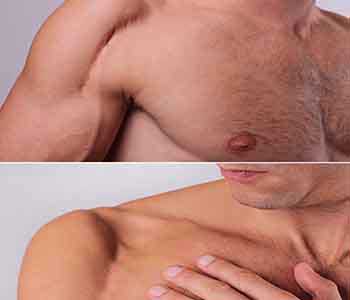Scar revision consists of a precise surgical procedure that will reduce the appearance of a scar or scars. Scar revision may be performed on most scars, located on any part of the body. A scar may be reduced in appearance or removed altogether using advanced techniques that preserve the condition of the skin as much as possible. A scar may be revised by removal, and also through the placement of some sort of implant in order to create more evenness in the overlying skin.
There are several different types of scars that may appear on the skin. Most often, scars are minimal and not problematic. There are some people, however, who are more prone to developing more significant scarring, called a keloid. Keloids may not be serious in terms of overall health, but the dramatic appearance of these scars can produce emotional distress, as well as physical discomfort. Keloid scars may at times be painful or become itchy. They are often raised from the surface skin, and may sometimes also be colored vastly different than healthy skin.
Scars that are similar to keloids are hypertrophic scars. This type of scarring may occur on the face or the body, and may be very noticeable due to their thickness. Dr. Kwan has found hypertrophic scars to be very responsive to treatment.
Scarring is a sign that an injury has occurred, and the skin has healed. Some scars span over larger areas of the body, or are located in a highly visible area. Regardless of the exact type of scar that is problematic for you, Dr. Edmund Kwan has the experience to determine the best scar revision treatment to reduce the appearance of scarring.
The consultation process is vitally important to the achievement of the desired outcome from scar revision treatment. Your surgeon will require in-depth information pertaining to your past and current health conditions, surgeries, and any medications you are taking. This includes herbal supplements and vitamins. It is also important to discuss your use of tobacco products or consumption of alcohol with your surgeon. There are various substances that can interfere with the body’s natural clotting abilities because they alter the thickness of the blood. In order to plan for a predictable outcome, your surgeon must understand possible obstacles. Most often, patients are advised to stop smoking in the weeks leading up to scar revision treatment, as the chemicals in tobacco products can inhibit the healing process. Through open discussion, your surgeon will be able to determine the most appropriate treatment for the correction of scars.
Dr. Edmund Kwan has eighteen years of experience helping men and women attain their desired aesthetic through cosmetic surgery. Contact us in New Jersey, Manhattan, or Flushing to learn more about scar revision surgery in New York and our other services.


